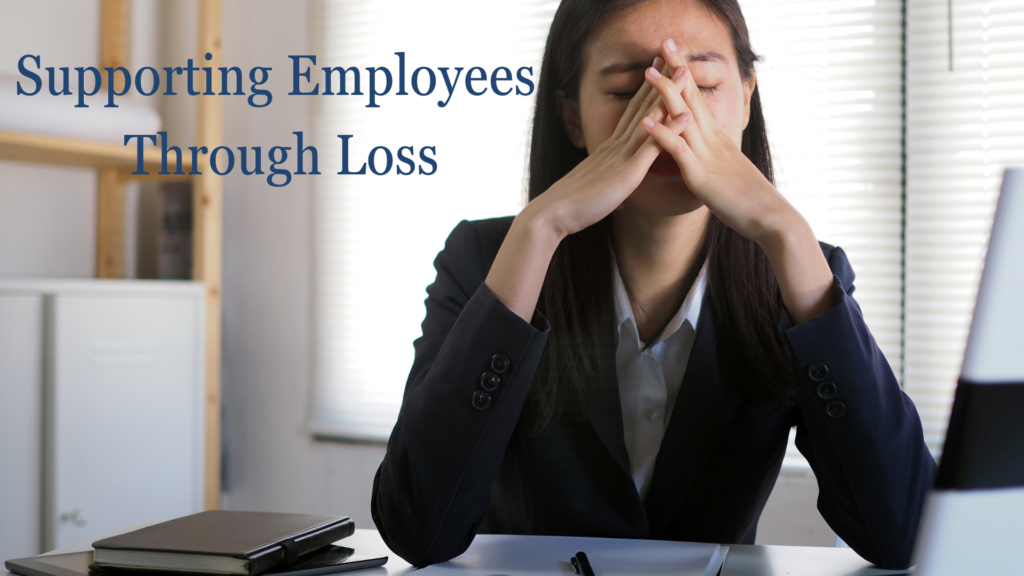
Grievers who return to work often report feeling isolated and alone. Each person is different in how much they feel, or don’t feel like talking about their loss.
Working environment stresses may also feel more intense, creating a sense of isolation as a griever is trying to “get back to normal” at work.
It’s important to understand that while the deep emotions of grief are being processed, mental capacity may be challenged and require some flexibility in workload and schedule.
Your employee may feel like they can’t handle the stress of returning to work, but having productive work is very helpful in creating routine and feeling a sense of purpose.
After experiencing the loss of two family members, I tried to come back full-time and found that I could barely make a decision, and working under deadlines felt at the same time unimportant given what I had just gone through but also frightening that I couldn’t focus or think straight.
My manager and I were able to determine a plan together to come back part-time for my first week back. We also found some flexibility in the tasks and scheduling of my projects so that work that needed to get done got done. Some things were able to be pushed back.
As leaders you do not need to know how to support someone emotionally, but you can have a great impact on your employee by recognizing what their needs for support. That requires knowledge of policies for bereavement and other time off.
Check-ins with your employee with the intent to support their integration back into work is critical.
Here are five impactful ways workplaces can support employees experiencing loss:
1. Provide Flexible Work Arrangements
- Allow time off for grief without stigma through bereavement leave or flexible scheduling.
- Offer the option to work remotely or adjust workloads temporarily to accommodate emotional and logistical needs.
2. Create a Culture of Compassion
- Be a Grief Informed workplace and provide training about grief and loss.
- Encourage open, supportive communication without pressuring employees to overshare or “move on.”
3. Offer Resources for Emotional Support
- Partner with grief support programs, like the Grief Recovery Method, and provide access to employee assistance programs (EAPs) with grief counselors.
- Share resources like workshops, webinars, or access to grief recovery specialists.
4. Avoid “Grief Myths” in Workplace Responses
- Educate teams to avoid unhelpful phrases like “Time heals all wounds” or “Stay busy to move forward.”
- Emphasize that grief is individual and allow employees to process it in their unique way.
5. Foster a Sense of Normalcy – Grief is Normal and Natural
- Provide a learning event to help all employees understand and normalize grief.
- Provide safe spaces for conversations where employees can share feelings if they choose.
If you would like to learn more about being a Grief Informed workplace please connect with me at info@energym.org

